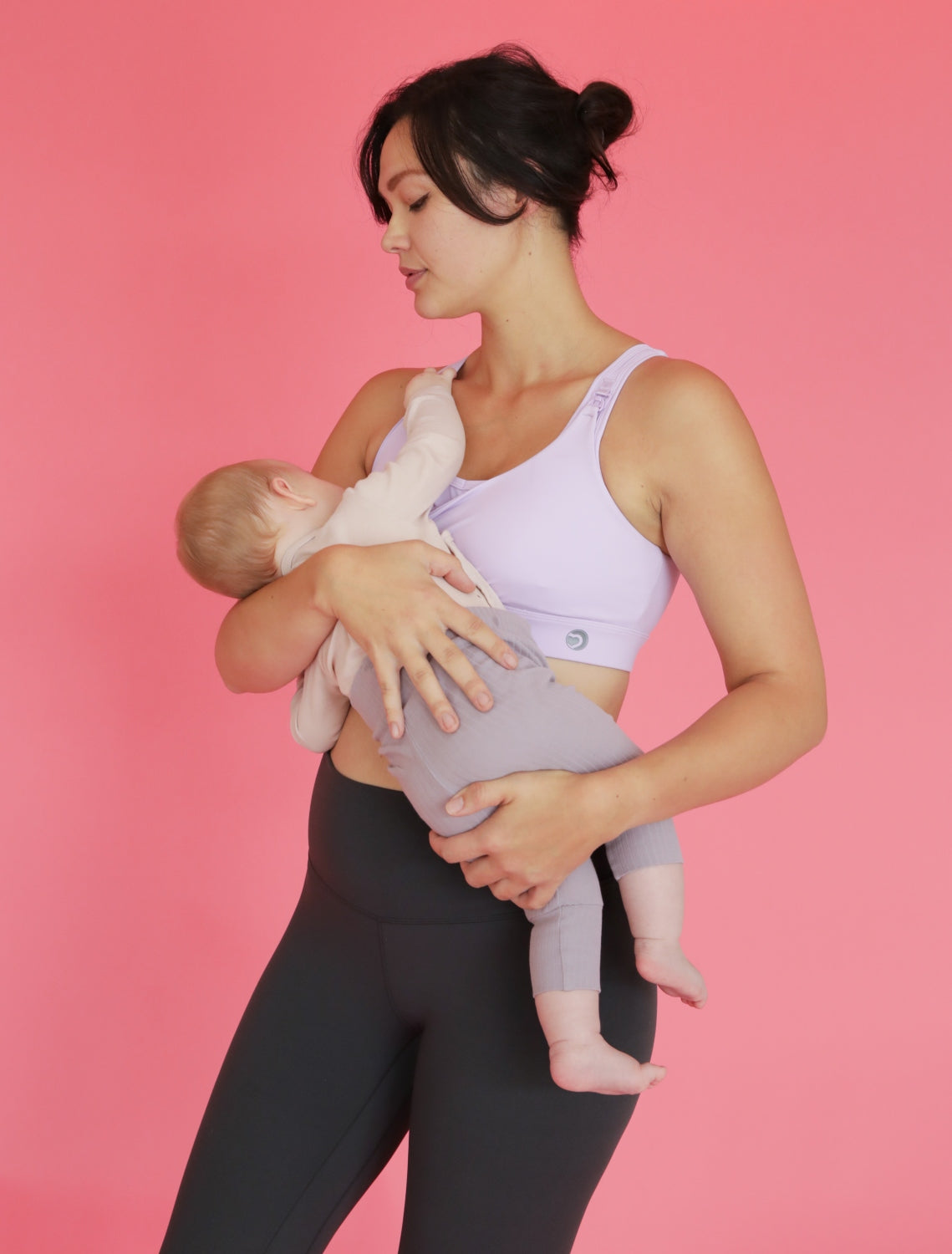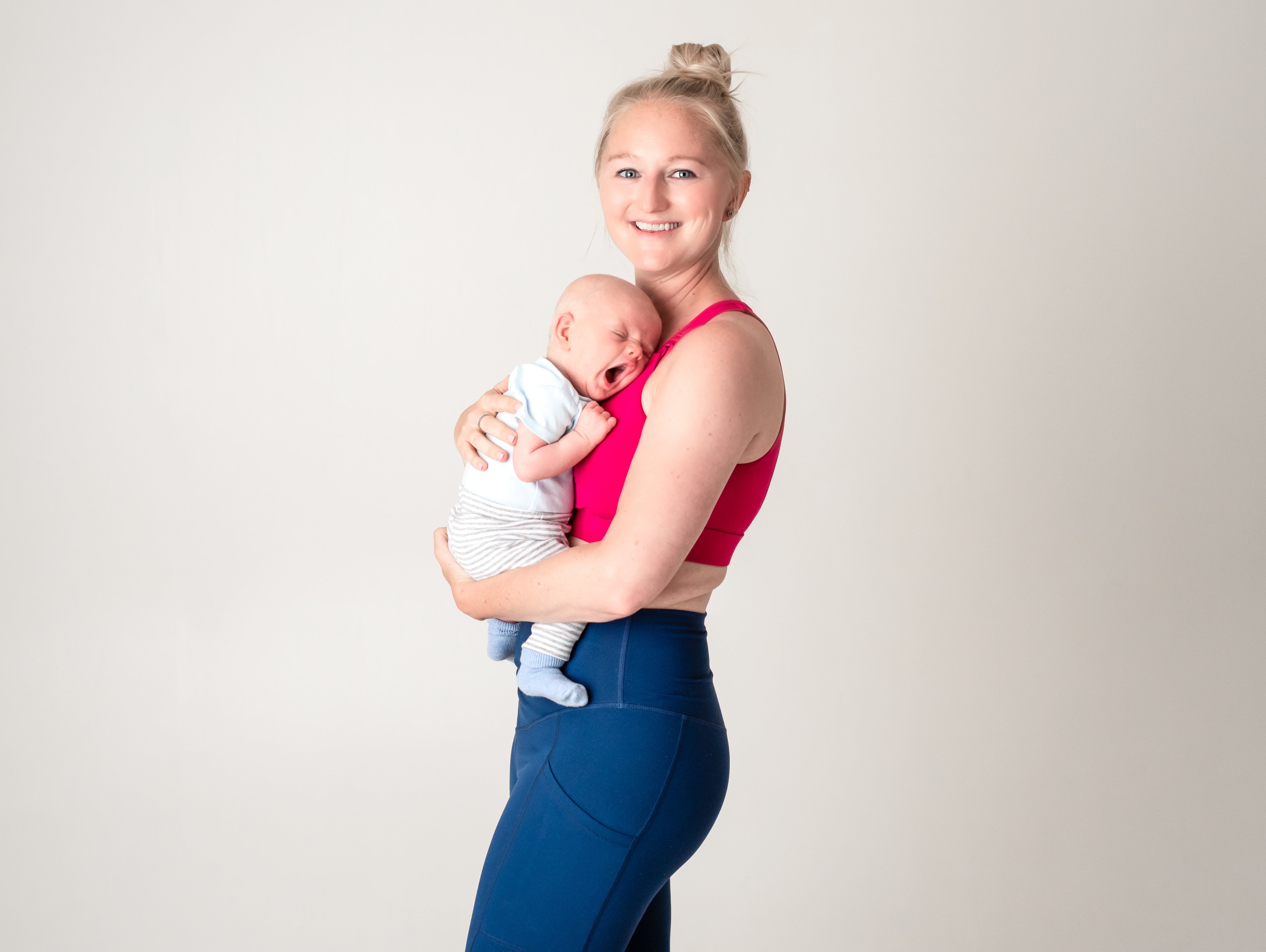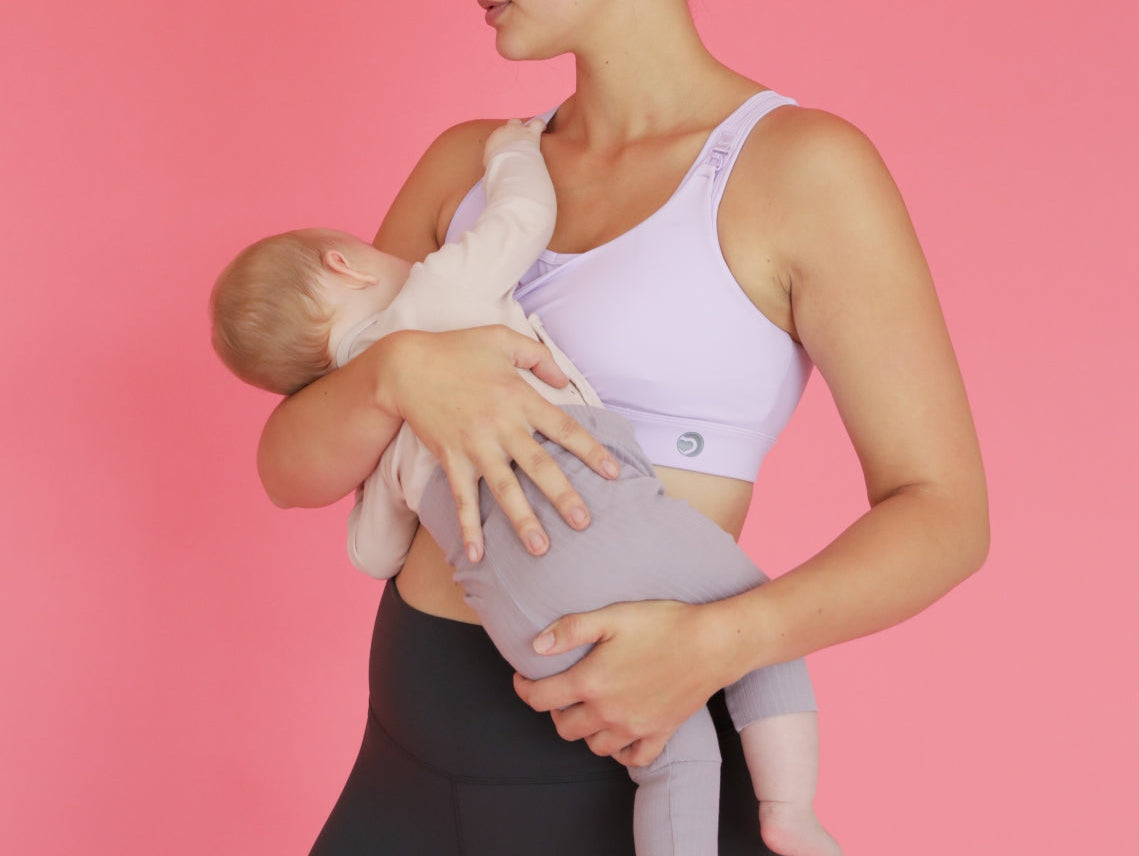Even if you prepared before baby arrived, by taking breastfeeding classes or doing your research, when you finally get to actually breastfeeding it isn’t always what you expect it to be. As wonderful and beautiful as it can be, it is hard from a physical and emotional perspective, and it can be painful or uncomfortable at first.
I think it is always good to have realistic expectations so here are some things to be aware of in those first few weeks:
It can be painful and uncomfortable
It is true that breastfeeding doesn’t hurt as long as you get a proper latch – except in the beginning! Some degree of discomfort is completely normal during those first feeds while your nipples toughen up from the friction of your suckling baby. I typically found within a couple of weeks the soreness and sensitivity would ease.
Lanloin is a great way to shield your nipples from some of the effects. (Take some to the hospital with you when you give birth and thank me later.) Not sure what to get? This one from Lansioh was my personal fave. Alternatively try nipple shields if you need a more enforced break to give your nipples a chance to recover.
You might not be able to do it alone
Newborns are born with incredible innate instincts, one of which is the ability to breastfeed. But like with anything it's a skill that needs to be practised. Once you get baby close to your breast, you might notice that they start to lift and bob their heads up and down, and side to side, this is your baby trying to find their food.
But you may find that initially you might need a few more hands to actually get baby to latch on properly. A lactation consultant can support you with this – speak to your midwife for services in your local area. While I found breastfeeding my first fairly straight forward in terms of latch, I was lucky to have lactation support provided locally for free and if nothing else she gave me the confidence that I had the latch right.
The impact isn't all physical, there is a huge emotional factor
During those first few weeks breastfeeding is a huge learning curve. it's amazing when things go to plan, but unfortunately that's not the case with pregnancy and the postpartum period. And that is totally okay. Just know that when things go wrong it's not your fault be patient with yourself and your baby.
I personally came very close to stopping when I suffered recurring mastitis first time around and struggled hugely with making the decision to continue or not. Guilt played a huge part in that and not to my own emotional benefit. Getting personal support from those closest to you if you are finding it very hard is important and if you feel you are struggling too much with continuing to breastfeed, know that it is also OK to stop.
Know that your decisions are yours to make and if they are the best for you, your baby, your family and your sanity, then they are the right decisions to make.
It’s exhausting
Did you know that when you are nursing your body needs, on average, an additional 300 calories a day more than you did whilst you were pregnant?!? As beautiful as breastfeeding can be and as wonderful as that emotional bond with baby is, it is a tiring task, you might find yourself sleepy and more hungry than normal over the next few weeks. Make sure you have plenty of easy snacks to hand that you can just grab and go. Try and stick to snacks that are nutrient-rich to avoid those energy crashes from junk foods. Remember to hydrate plenty too!
Environment matters!
Does it feel like no matter what you do, baby just doesn’t want to latch, isn’t feeding well or just generally seems quite fussy? One reason for this could be your environment. Any number of things could make it difficult for baby to stay focused or want to feed. Perhaps the tv is too loud in that room, or the lighting is too bright, maybe baby is too hot or cold…they could even just be uncomfortable. Some babies are perfectly happy to nurse wherever, whenever but if your baby seems to be struggling, try changing things up in your environment to make it more relaxing for you, it just might be exactly what baby needs.
It is entirely possible to exclusively pump
There are so many reasons why a mum may choose to only pump. From lifestyle, family or health, the reasons a mother chose to pump are vast but it won’t change the amount of nutrients baby gets! Just make sure to choose a high-quality pump – this handsfree one from Pippeta is a great option for pumping while you get other jobs done.
If you need emotional support we recommend contacting the National Breastfeeding Helpline (0300 100 0212) or visiting the La Leche League Website




